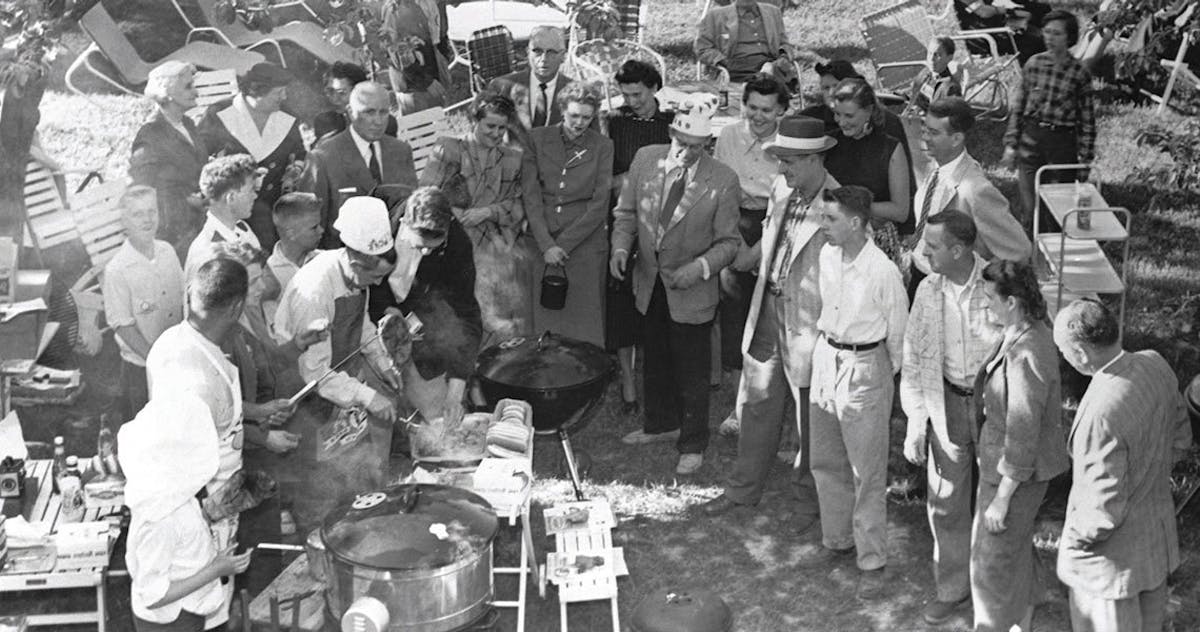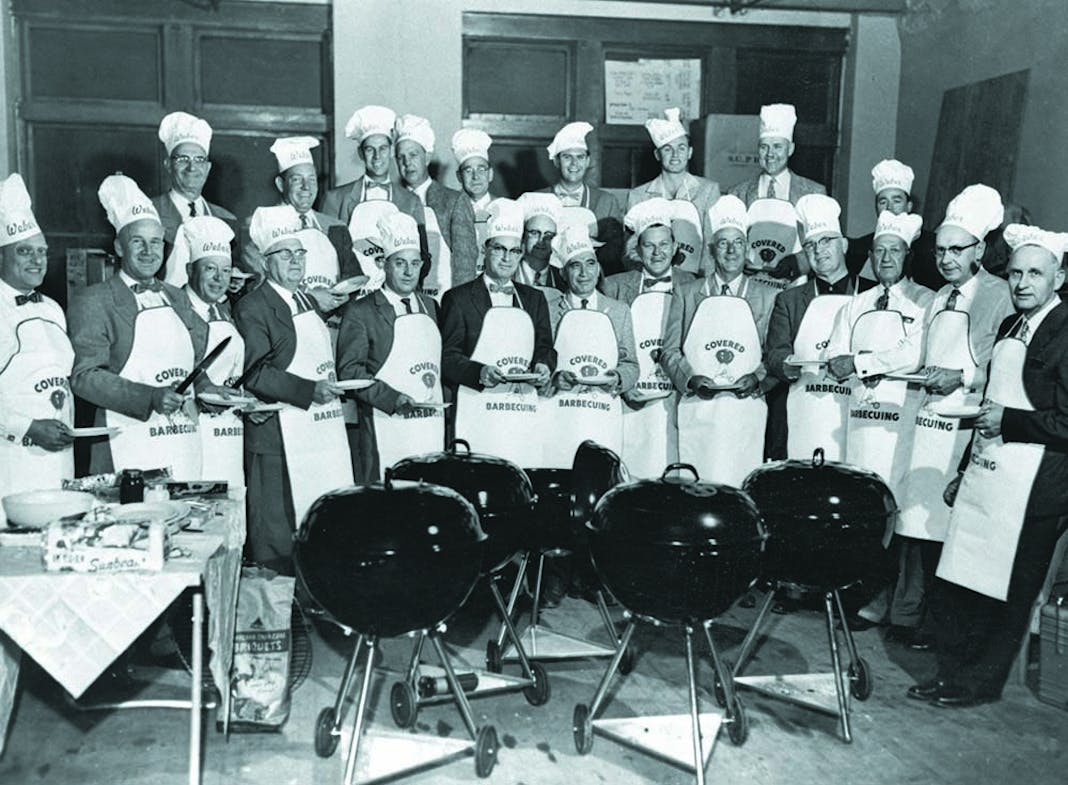Weber’s story is one of relentless innovation, expert craftsmanship, and a deep-rooted passion for outdoor cooking, all of which have fundamentally changed how people grill today. From modest beginnings to a global reputation for excellence, Weber has redefined quality in outdoor barbecues. This article will take you through Weber’s history, uncovering the key milestones that have crafted the company and its iconic products.
The Genesis of Weber: Creating the First Kettle Grill
Weber’s journey began in 1952 when George Stephen Sr., a welder at Weber Brothers Metal Works in Chicago, developed what would become a groundbreaking innovation in grilling—the Weber Kettle Grill. At that time, grilling was often an inconsistent experience, with unpredictable cooking results due to limited control over temperature. Driven by his own challenges with grilling, Stephen fashioned a dome-shaped grill from a buoy at his workplace, creating a closed environment that allowed for regulated heat and improved cooking.
This wasn’t just a grill; it was a game-changing innovation. The kettle shape enabled even heat distribution, and adjustable vents provided a level of control that grillers had never experienced. This design laid the groundwork for what would become a worldwide barbecue phenomenon.
Expanding Weber’s Reach: Innovation and Growth in the 1960s
Following the kettle grill’s success, Weber experienced rapid growth. In 1958, George Stephen acquired the Weber Brothers factory and established Weber-Stephen Products LLC. During the 1960s, Weber refined its product line and expanded its offerings, catering to the increasing demand for quality outdoor cooking equipment.
As grilling grew into a beloved American pastime, Weber became a hallmark of durability and innovation, elevating the brand as a trusted name in outdoor cooking. Its commitment to superior construction and performance solidified its place in households across the nation.

Pioneering Gas Grilling: The Introduction of the Genesis Series
As outdoor cooking preferences evolved, Weber ventured into gas grilling, launching the Genesis series in 1985. This line of gas grills introduced a level of convenience and precision that transformed the grilling experience for many enthusiasts.
The Genesis grills offered unique features, including a multi-burner system that enabled separate cooking zones, allowing users to cook different foods simultaneously at varying temperatures. This innovation unlocked new possibilities, like indirect cooking and smoking, expanding the culinary potential for grillers everywhere.
By blending the quality of its charcoal grills with the ease of gas, Weber once again set a high standard in the industry. Today, the Genesis line remains one of the most popular gas grills globally, known for its reliability and advanced features.
Building a Community: Weber’s Emphasis on Education and Customer Connection
A crucial component of Weber’s long-standing success is its dedication to customer education and community building. Recognizing that its grills are integral to memorable moments, Weber created initiatives to empower its customers.
The Weber Grill Academy, a worldwide network of grilling schools, offers hands-on classes that cater to all skill levels, teaching everything from basic techniques to advanced grilling methods. In addition, the Weber Nation platform connects grillers from around the globe, fostering a supportive community where users share recipes, tips, and grilling stories. This customer-centric approach has been instrumental in creating a loyal following and strengthening Weber’s brand presence.
Embracing New Technologies: Weber’s Modern Innovations
Weber’s pursuit of innovation has continued well beyond the Kettle and Genesis series. Over the years, the company has pushed the boundaries of outdoor cooking, introducing smart grills controlled through smartphone apps and developing advanced grilling accessories for a modern audience.
One of the latest innovations is the Weber SmokeFire series, a versatile line of pellet grills that combines Weber’s signature quality with the ease of pellet grilling. With SmokeFire, users can smoke, sear, and grill with precision, illustrating Weber’s commitment to adapting to contemporary consumer needs.

Expanding Globally While Upholding Quality Standards
Now a household name in over 40 countries, Weber’s global expansion has brought its grills to major retailers worldwide. Despite its rapid growth, Weber remains steadfast in its commitment to quality, ensuring that each grill is built to last.
Weber’s dedication to excellence is evident in its rigorous product testing and ongoing improvements to design and materials. By prioritizing high-quality construction, Weber grills are designed to withstand the elements and provide a superior cooking experience for years.
Commitment to Environmental Responsibility
As environmental awareness has increased, Weber has made strides to ensure its products are sustainable and environmentally friendly. The company has adopted energy-efficient manufacturing processes and uses durable materials that reduce waste. By designing grills built to last, Weber minimizes the need for frequent replacements, reducing its environmental impact.
Additionally, Weber is exploring cleaner energy sources, such as natural gas and electric grills, to make grilling more sustainable. This focus on environmental responsibility aligns Weber with the needs of today’s eco-conscious consumers.

Conclusion: Weber's Lasting Legacy of Innovation and Excellence
Weber’s journey is a testament to the impact of innovation, dedication to craftsmanship, and an unyielding focus on quality. From the creation of the iconic Kettle grill to the groundbreaking Genesis series and beyond, Weber has continually set new standards in the outdoor cooking industry. As Weber grows and evolves, its legacy of excellence remains strong, making it the preferred brand for grill enthusiasts across the world.
